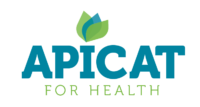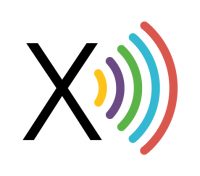Although the tobacco industry heavily targeted the Asian American, Native Hawaiian and Pacific Islander (AANHPI) communities (along with other diverse communities) and smoking rates were particularly high in specific sub-populations, tobacco prevention was a low priority among both AANHPI communities and mainstream tobacco prevention efforts.
In the fall of 1997, a core group of AANHPI community leaders began organizing as the Asian Pacific Islander Coalition against Tobacco. The coalition addressed tobacco control issues within the AAPI community by supporting culturally appropriate prevention, education, and cessation efforts with adults, youth and families.
In 1997 and 1999, coalition members participated in the Asian Pacific Partners for Empowerment, Advocacy, and Leadership Program (APPEAL) summits. The APPEAL model of leadership development, in the areas of infrastructure building, programs, policy change, and research and data dissemination, became APICAT’s approach to addressing community needs.
The coalition grew to include over 25 partners throughout the years.
In 2011, APICAT members changed the name from API Coalition against Tobacco to API Coalition Advocating Together for Healthy Communities, reflecting the coalition’s expanding commitment to address other health disparities issues impacting diverse communities.
2001
- Receives funds from Department of Health to conduct a community assessment on tobacco prevention and control in AANHPI communities
2003
- Develops its mission and vision and establishes name for the coalition
- DOH awards cross-cultural contract to APICAT, with WAPIFASA as a fiscal agent
2004
- Develops and implements a mini-contracts program funding nine community organizations to do tobacco
control work in the API community - First year of the Cross-Cultural Leadership Institute
- First year of mini-contracts program to carry out tobacco control projects
- Conducts survey: “Community Leaders’ Opinion on Secondhand Smoke”
2005
- Second year of mini-contracts program, eight organizations funded
- Second year of Cross-Cultural Leadership Institute
- End of the Year celebration at Tukwila Community Center highlighting projects funded by APICAT
2006
- Third year of mini-contracts program, nine organizations funded
- Leadership Institute Fellows’ tobacco training
- Cross-Cultural Celebration at Tukwila Community Center
2007
- Data & Research Forum hosted by Cross-Cultural contractors
2010
- Develop and distribute “Healthy Air” to measure resident tobacco use and support for smoke-free in homes policy
2011
- APICAT partnered with SCID and InterIm to implement “No Smoking in the Home” policy in 7 buildings in the Seattle Chinatown/International District area
2012
- Asian Quitline developed, implemented and promoted (until June 2013). Available in Chinese (Cantonese/Mandarin), Korean and Vietnamese languages
2014
- Conducts Community Assessment of Neighborhood Stores (CANS) Alcohol & Tobacco Youth Photo Voice Project among African American, AANHPI and LGBT youth to document tobacco industry targeting in selected neighborhoods
2015
- Conducts Media Literacy campaign to equip youth with counter-advertising awareness
- Youth Digital Story Project
2016
- Assessment of AANHPI Youth Perceptions, Knowledge and Attitudes toward Marijuana and E-Cigarettes/Vape
- Mini-contracts given to 4 partners to implement the Guiding Good Choices program
- Awarded the DOH Tailored Youth Marijuana Prevention Marketing grant
2017
- Awarded the King County Best Start for Kids – Healthy and Safe Environments grant

